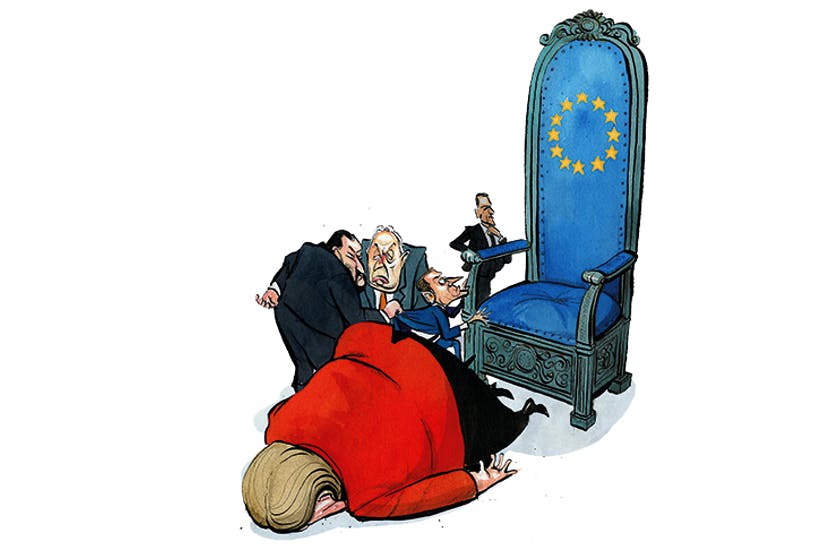A new, fresh leader. Bold radical ideas. And a programme for rebooting an economy that, for all its formidable strengths, is, to put it kindly, a little stuck in the 20th century. Later today, Germany is set to anoint its first new Chancellor in 15 years, and, at the very least, you might expect some new ideas. The trouble is, there is little sign of them from Olaf Scholz. Instead, the country is opting for the euro-zone’s slow lane, falling behind a rapidly reforming Italy and France.
After two months of complex negotiations, following an inconclusive election in September, the Social Democrat leader Olaf Scholz will finally present his coalition agreement later today. He has put together an unlikely grouping of the Social Democrats, a lumbering left-of-centre, trade union party with a rising Corbynista wing, the Greens, and the pro-business, pro-market Free Democrats.
The dynamics of the European bloc are in a rare state of flux
In reality, none of them really agree on anything very much except that they think it is about time they had a go at running a ministry or two. The platform for government is likely to be a bland mix of infrastructure spending, phasing out coal power, and slightly easing the debt brake that limits the ability of any German government to borrow money. Here’s the problem, however: the new government is bad news for Germany.
The dynamics of the European bloc are in a rare state of flux. Under Mario Draghi, Italy has embarked for the first time in a generation on serious reforms. It has also skilfully negotiated the lion’s share of the European Union’s Coronavirus Rescue Fund, allowing it to turbo-charge its economy with lots of money borrowed from other people. The result? Italy is forecast by the IMF to expand by 5.8 per cent this year.
Across the border, France’s president Macron gets plenty of flak, not least in the UK, and his record as a reformer has been tepid, to put it mildly. And yet he has managed to inject some entrepreneurial vigour into the French economy, and spent lavishly enough to keep demand growing. The IMF forecasts it will grow by more than six per cent this year.
But Germany? With a declining auto industry, which accounts for ten per cent of total GDP, few digital start-ups, and a reliance on exports to China, it is only forecast to grow by 3.1 per cent as it struggles to recover from the pandemic. With a fresh lockdown looming, it may not even reach that.
We are used to the cliche that Germany is the euro-zone’s strongman, with the mightiest economy, easily outpacing the crisis-prone South. And yet that view is increasingly out-of-date. Germany is in danger of turning into the weakest major economy in the bloc; as that happens, power will inevitably shift from Berlin to Paris and Rome.
Sooner or later, Germans will vote for a Chancellor who will reform the economy, and get the economy moving again. But it won’t be Scholz, and it won’t be the fractious coalition he unveils today. It will condemn the country to the slow lane.






Comments